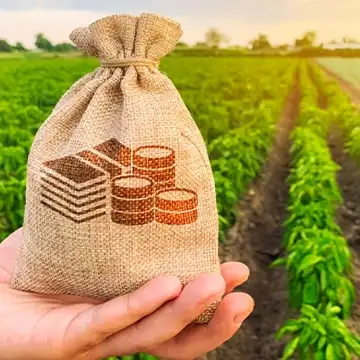
Empowering smallholder farmers in agriculture financing has been one of the strongholds that SACCOs have taken up in recent years.
Smallholder farmers play a vital role in the agriculture sector. This is especially due to their huge contribution to food security and the economy. However, there are significant challenges that these farmers face. These include a lack of access to finance and other resources required to grow and expand their businesses. The smallholder farmers typically operate at a subsistence level, struggling to make ends meet and facing challenges such as poor infrastructure, limited market access, and inadequate training. These challenges hinder their ability to improve their yields, reduce production costs and increase their income.
In developing areas, SACCOs have stepped up as critical players to ensure that they come in aid of the smallholder farmers in terms of agriculture financing. They have been able to transform the way smallholder farmers access credit and empower them to build sustainable livelihoods.
By being community-based organizations, are well suited to provide financing to smallholder farmers. This is major because they are well familiar with the local context. They understand the challenges faced by farmers and can therefore tailor their services to meet their needs. As a result of their great focus on financial inclusion, they prioritize serving marginalized groups such as smallholder farmers.
Ways in which SACCOs are transforming agriculture financing
Providing loans to farmers.
Therefore, there is a transformation of the agriculture sector through the provision of loans to farmers that are specifically designed for agricultural purposes. The loans offered, often have lower interest rates than other types of loans thus making them more affordable thus empowering smallholder farmers.
Smallholder farmers encounter challenges when trying to access loans. However, SACCOs, require less collateral and thus are able to serve even members who do not have land title deeds or other assets to use as collateral.
Providing value chain financing
Value Chain financing refers to the provision of financing for the entire value chain of a particular crop or product. This is another way in which SACCOs are empowering smallholder farmers.
How value chain financing helps smallholder farmers:
Access to credit.
As a result of a lack of collateral or credit history, smallholder farmers often face difficulties in accessing credit. SACCOs providing value chain financing have designed credit products that are tailored to the specific needs of farmers, such as crop loans, input loans, and equipment loans.

This has helped farmers to access credit easily, allowing them to purchase farm inputs, pay for labor, and invest in their farming activities.
Improved market access.
In some cases, SACCOs have established relationships with various actors in the value chain, including processors, exporters, and traders. By providing the finances to smallholder farmers, farmers can meet the quality and quantity requirements of these buyers. This in turn increases their chances of accessing better markets and earning higher prices for their produce.

Capacity building
SACCOs could offer training and technical support to farmers, to improve their production and marketing skills. Topics that can be discussed include crop management, post-harvest handling, and market strategies. This has helped farmers to improve their yields, reduce post-harvest losses, and negotiate better prices for their produce.
The capacity building could also be in terms of the provision of financial education and training to members. This is important because many smallholder farmers may not have experience managing financial resources or may not be familiar with basic financial concepts such as budgeting and savings. By providing financial education, farmers can make informed financial decisions. This in turn leads to the building of more sustainable livelihoods.
SACCOs could also work to build partnerships with other organizations to empower smallholder farmers. For example, partnering with agricultural extension services to provide technical assistance to farmers. They may also partner with NGOs and other organizations to provide training and capacity-building for farmers.
Risk mitigation
By providing value chain financing, SACCOs offer risk mitigation strategies such as crop insurance and weather-based insurance. Therefore, farmers can easily mitigate the risks associated with crop failure. Some of the risks include adverse weather conditions and other unforeseen events that can impact their livelihoods.
By providing value chain financing, increased productivity, income, and improved livelihoods are witnessed among smallholder farmers. This in turn contributes to the development of rural communities.
Making use of technology
SACCOs are also using technology to improve their services to smallholder farmers.
As a result of the digital transformation, digitization of most of their services has helped to improve efficiency in terms of their operations.
Mobile banking, for example, allows farmers to access their accounts and make transactions using their mobile phones. This is particularly important for smallholder farmers who often live in remote areas and may not have easy access to physical bank branches.
By making use of mobile phones to transact, there is a reduction in risks among members. This is because there is minimal or no theft or loss of cash during various transactions.
SACCOs and members benefit from the use of mobile phones when there is a need to assess their creditworthiness when applying for loans. Credit scoring is possible when using mobile banking. This is because mobile banking records farmers’ financial transactions. This allows the evaluation of creditworthiness thus only giving loans to members depending on their loan repayment status.
As a result of making use of mobile banking, SACCOs reach more customers and reduce their operating costs. This in turn translates into lower interest rates and fees for borrowers.
Challenges encountered.
Despite the many advantages, there are still challenges that need to be addressed.
The challenges include:
- Lack of awareness and understanding of SACCOs among smallholder farmers. Many farmers could not familiar with or may not understand how they can benefit from their services. This, therefore, underscores the importance of financial education and outreach to build awareness and trust among farmers.
- There is a need for more investment in agriculture financing. While their impact on agriculture financing is well felt, there is still a large unmet demand for credit among smallholder farmers. Governments, donors, and other stakeholders need to prioritize investment in agriculture and financing to reach smallholder farmers, particularly those in remote and marginalized areas.
In conclusion, SACCOs have emerged as a critical player in empowering smallholder farmers in agriculture financing. Through the provision of affordable credit, savings, insurance, mobile banking, access to markets, inputs, and other support services, thus improve the livelihoods of smallholder farmers, as well as increase their productivity and profitability. However, stakeholders need to do more to address the challenges faced, especially in terms of funding and outreach. if the challenges are addressed, the impact on smallholder farmers will be enhanced.
Other links:

